How the #DisruptTexts Movement Can Help English Teachers Be More Inclusive
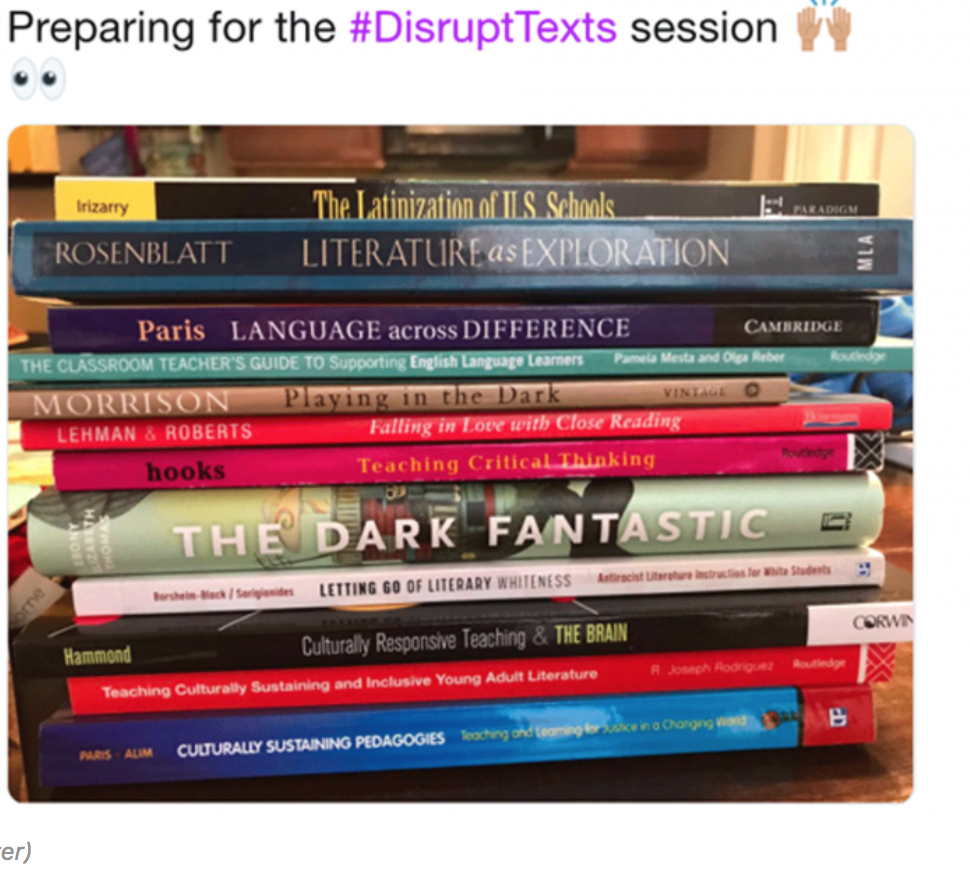
This article features advice from the founders of the #DisruptTexts Twitter chats and website who are working to help other English Language Arts teachers create equitable and inclusive curriculum. Through weekly twitter posts and a moderated online discussion, they encourage teachers to reflect and consider the message their choice of texts sends to students about whose voices and… Read More ›
4 Strategies to Make Grading Tolerable
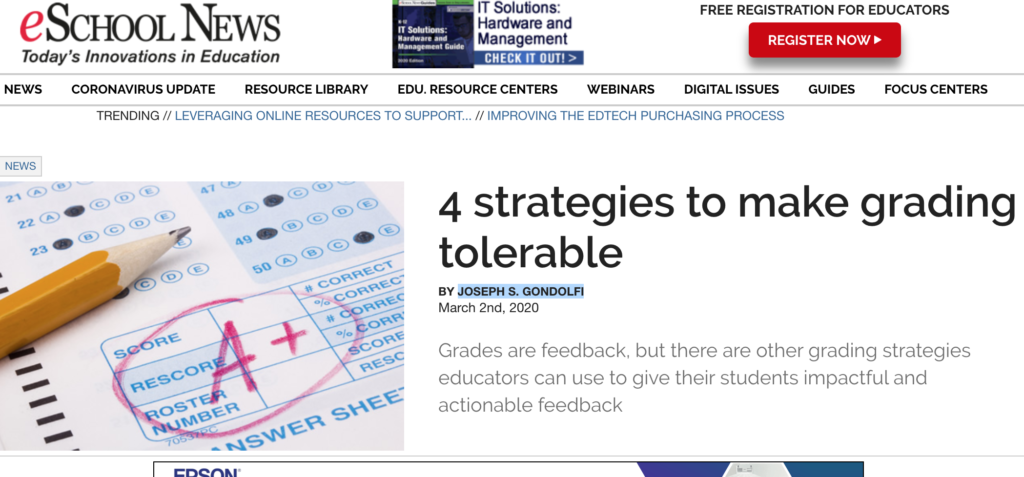
In this article, a teacher offers advice on how to share responsibility for providing feedback with students. He shares his journey of moving away from providing grades to focusing on formative feedback. The section that discusses how he teaches students to assess their own writing is particularly useful for writing teachers. Source Organization: Eschoolnews Visit… Read More ›
How to Make Student Choice Work
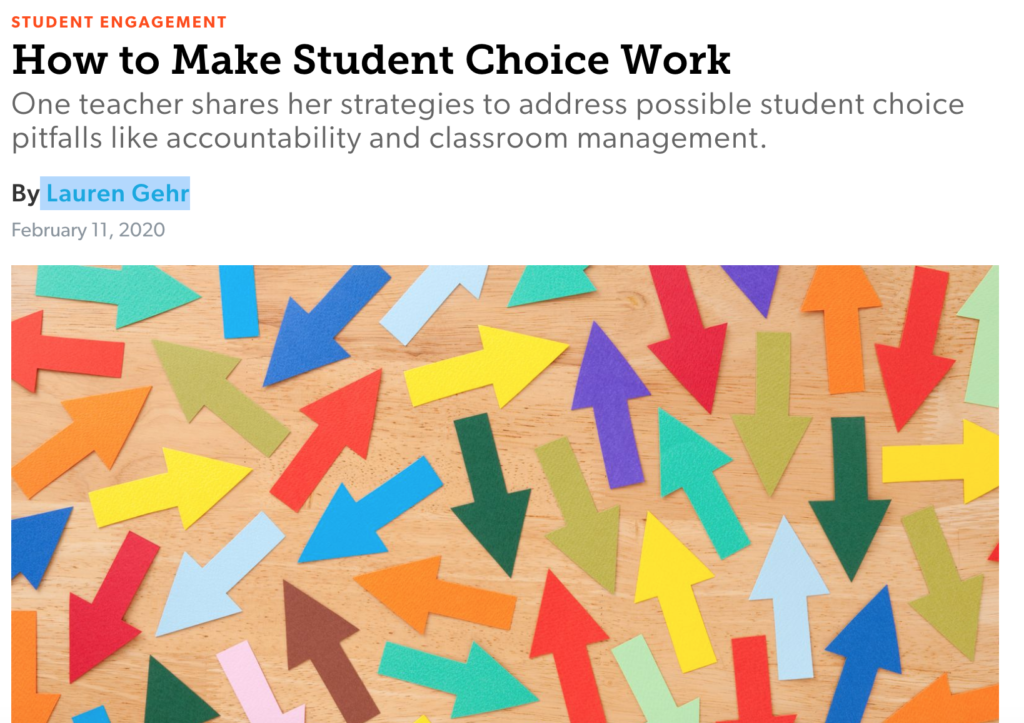
In this article a teacher discusses how she gives her students the power to choose what they learn and how they demonstrate their learning. She shares advice and strategies to address possible student choice pitfalls like accountability. This is a great read for teachers of any subject. The suggestions on how to use technology to… Read More ›
Teacher Resources While Social Distancing

Empowering student-centered learning in new ways Never have my two worlds collided in such a big way. I have worked in education research for the last 20 years and spent the last several curating the Students at the Center resource database part-time. The rest of my hours are spent raising two delightful AND infuriating elementary-age… Read More ›
Teaching Students to Give Peer Feedback
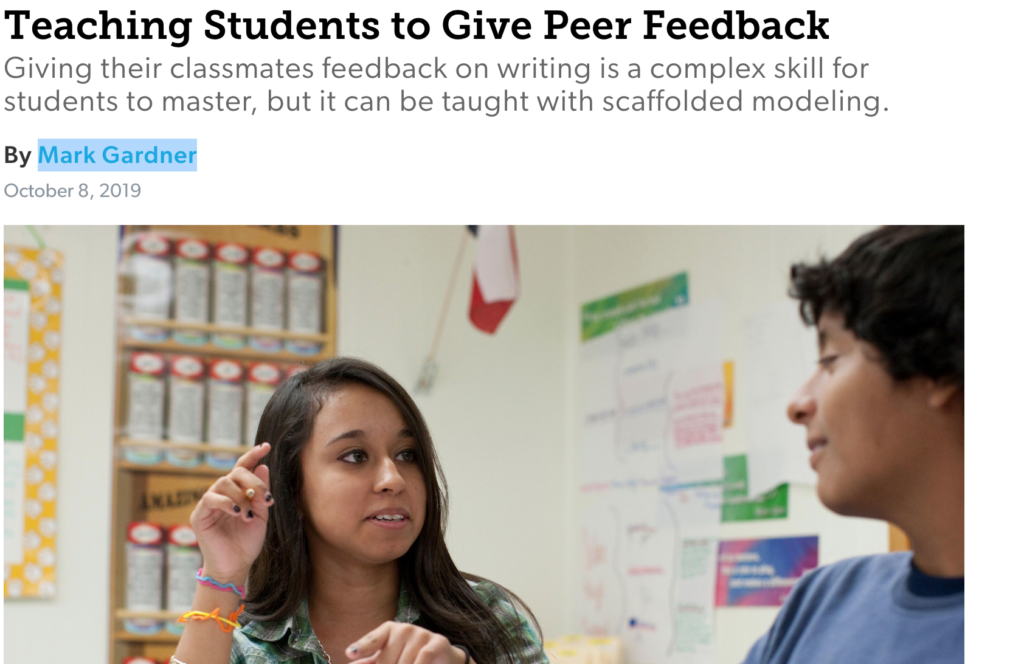
A high school English teacher shares how he teaches peer feedback skills in this article. To help teach students this important skill, he defines quality feedback, provides structured routines and models how to provide feedback. This scaffolded approach could be used by teachers of any subject who want to bring peer feedback to their classroom.… Read More ›
My Greatest Teaching Problem Was Feedback. Here’s How Research Helped Me Solve It
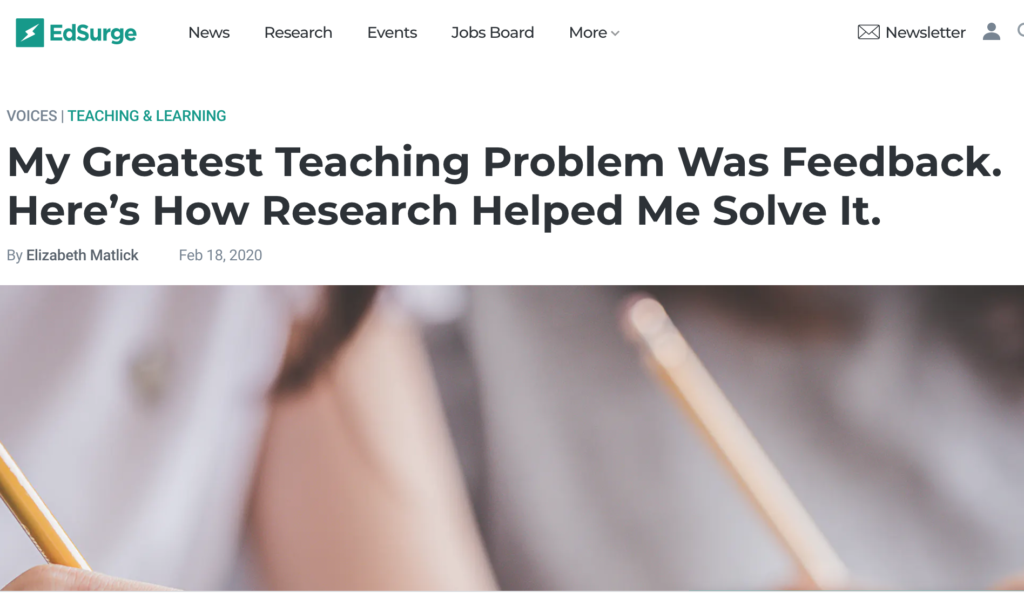
In this article, a high school English teacher shares how her approach to student feedback has changed through her teaching career. She describes how she turned formative assessment into a shared responsibility by using self and peer feedback in her classroom. She outlines the work she did to better understand feedback literacy and the metacognitive… Read More ›
The Novice to Expert Shift
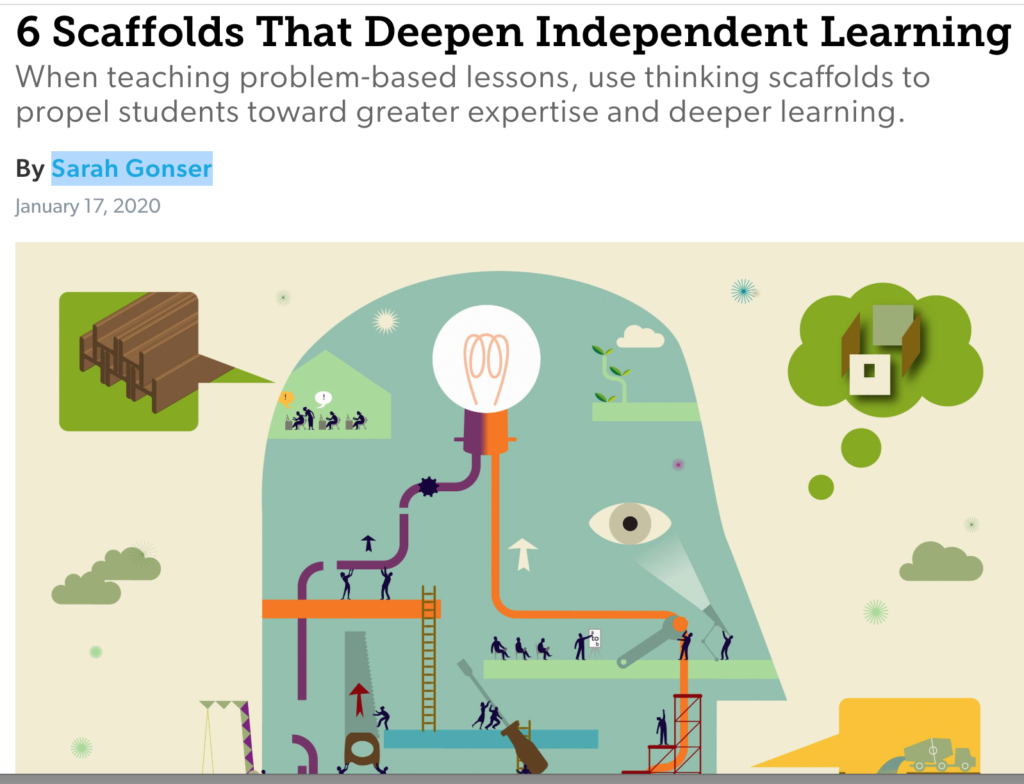
This article presents useful take-aways from a small scale study of students participating in a student-driven, problem-based science curriculum. Researchers found the prompts and support instructors used to guide students through the curriculum and activities, sometimes called thinking scaffolds, were critical to the growth of deeper level thinking skills. Any teacher launching a problem-based project… Read More ›
Making SEL Culturally Competent
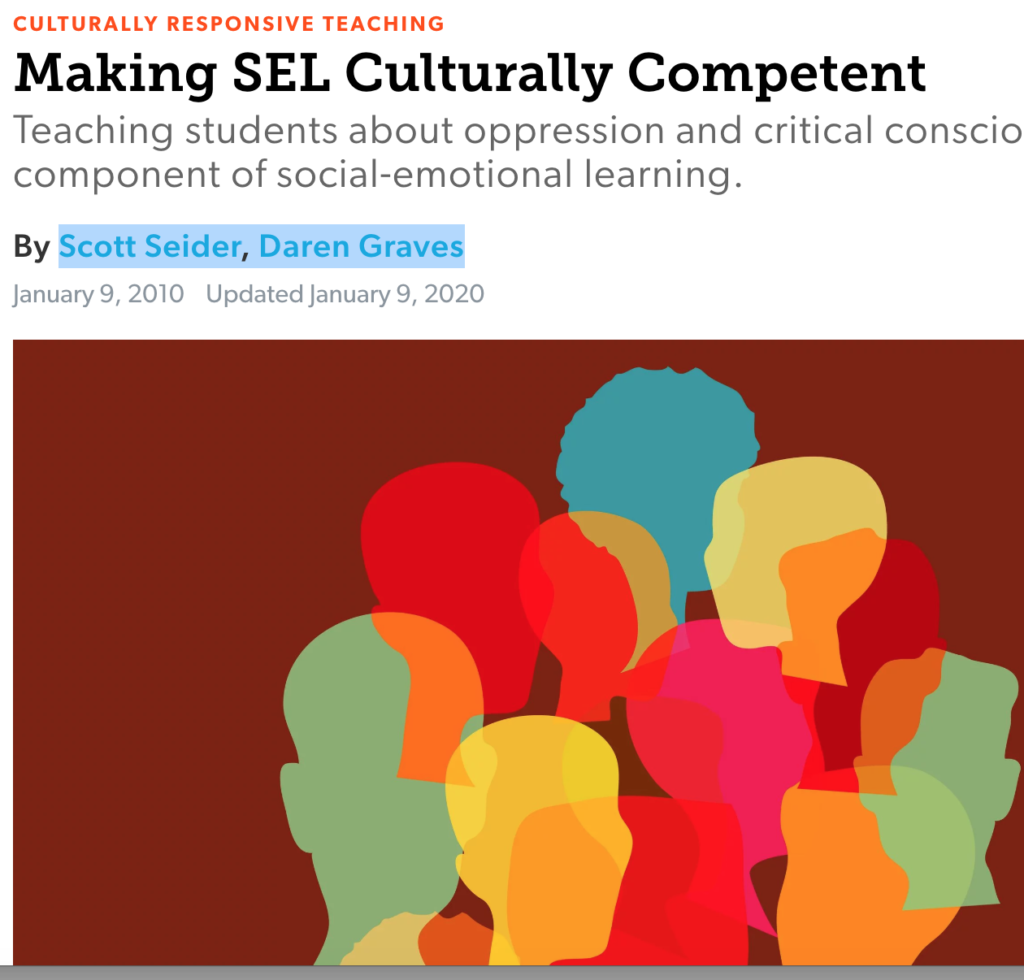
This article provides strategies for educators to ensure social-emotional learning (SEL) practices are enacted in ways that are culturally responsive and equitable for youth. In particular, it introduces the concept of critical consciousness, which refers to youths’ ability to recognize and resist oppressive forces shaping their lives and communities. Any educator of any grade-level can… Read More ›
Del Lago Academy Series
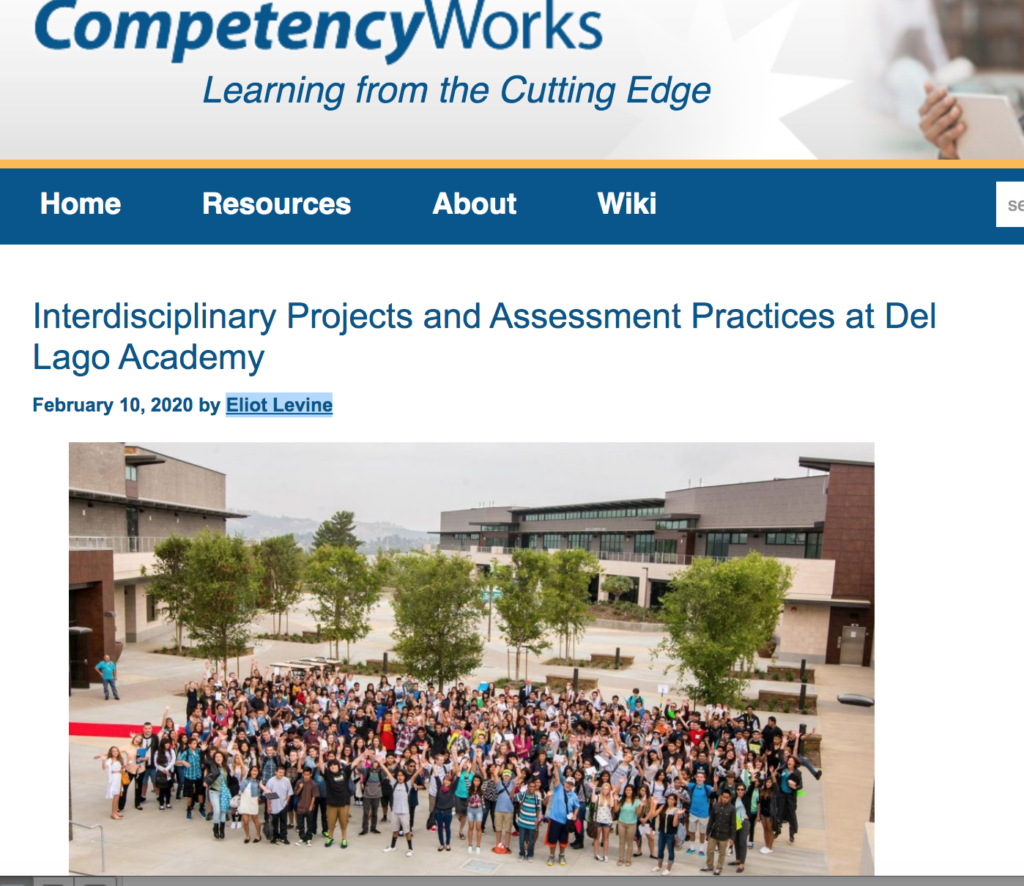
This is a four-part series of articles featuring Del Lago Academy Campus of Applied Science, which was created by community members and staff in Escondido, California to offer a more student-centered learning option to the district’s high school students. The school focuses on competency-based practices, personalization, and authentic interdisciplinary learning projects. Articles in the series… Read More ›
10 Reasons Edtech Works Sometimes, But Not All the Time
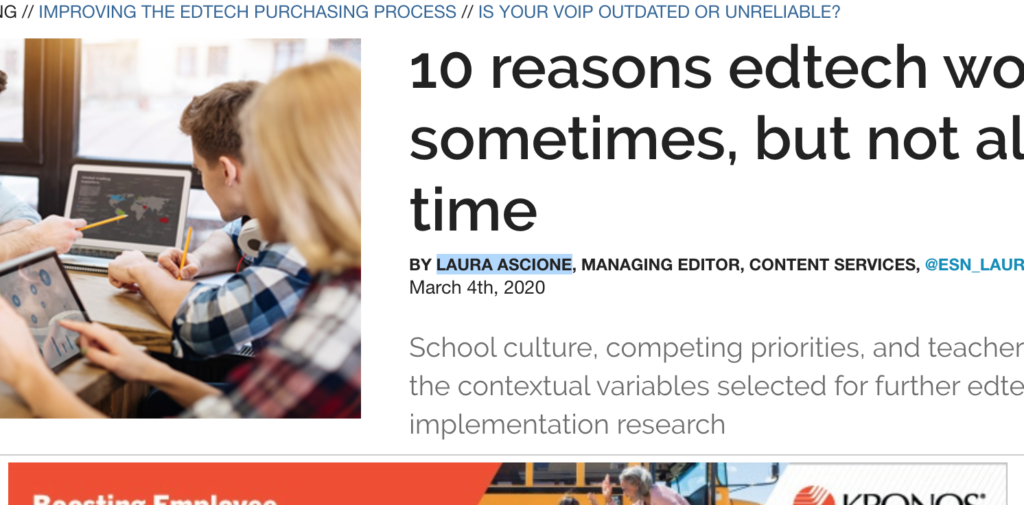
This article outlines the plans of the EdTech Genome Project, a collaborative effort of more than 100 education research and advocacy organizations, to research the contextual factors that impact education technology (ed-tech) implementation. The organization identified the ten factors hypothesized to have the greatest influence, such as adoption plans and school culture. They are now… Read More ›
Scaling is All the Rage, but How Do You Make It Happen?

It’s fall 2017 in New Hampshire. The state’s Performance Assessment for Competency-based Education (PACE) system is entering its third year. Using this alternative state accountability system, 150 teachers in nine school districts have created 14 performance assessment tasks in mathematics, English language arts (ELA) and science. The tasks have been validated against standardized state tests… Read More ›
Making Powerful Educational Choices for our Children
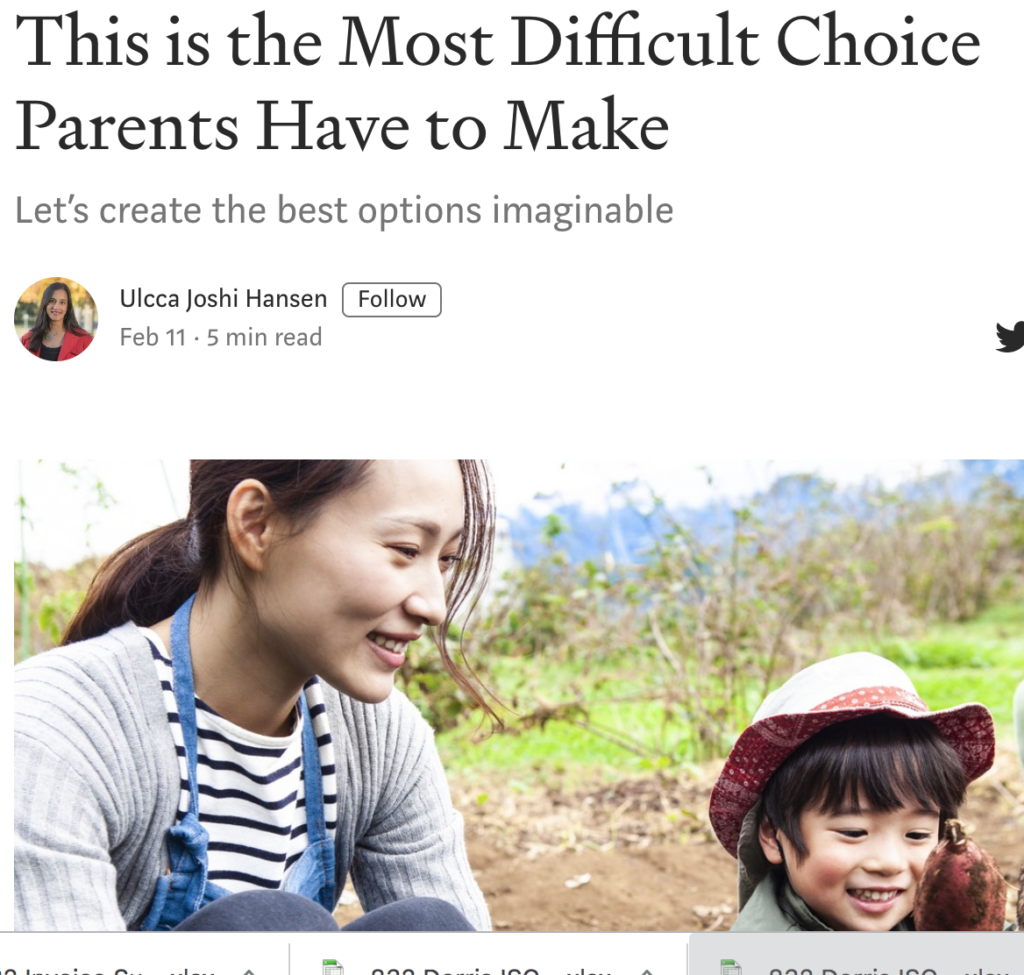
This article calls on parents to advocate for student-centered learning. Written by a fellow parent, it outlines the advantages of learner-centered education. It could be used as a source of inspiration for any group of parents interested in advocating for changes in the education system. Source Organization: Today Parenting Visit the Resource